Do you have a question about the Dell EqualLogic PS6100 series and is the answer not in the manual?
Provides technical guidance for designing and implementing Dell EqualLogic PS Series storage solutions in iSCSI SAN environments.
Intended for storage administrators, SAN designers, storage consultants, or anyone considering purchasing Dell EqualLogic PS Series Arrays.
Discusses building a robust, standards-compliant iSCSI SAN infrastructure for EqualLogic arrays.
Defines the intended audience for this configuration guide.
Lists and describes various Dell EqualLogic PS Series array models prior to PS4100/PS6100.
Details the array models in the PS4100 and PS6100 families, including drive types and counts.
Describes the PS-M4110 array model, including its controller and configuration options.
Explains controller redundancy and failover behavior across different PS Series models.
Discusses requirements for consistent firmware versions across group members.
Details considerations before performing firmware upgrades, including release notes.
Shows compatibility between PS Series firmware versions and EqualLogic tools.
Provides recommendations for optimizing high availability and preparing for firmware updates.
Covers setting RAID policies for members and guidelines for choosing them.
Summarizes RAID level characteristics and compares them based on workload requirements.
Details supported conversions between different RAID policies.
Shows RAID 6 drive layouts and usable storage based on drive count and hot spares.
Details RAID 10 drive layouts and usable storage for various drive counts and configurations.
Shows RAID 50 drive layouts and usable storage based on drive count and hot spares.
Details RAID 5 drive layouts and usable storage, noting it's not recommended for business-critical data.
Explains PS Series SAN Groups, members, and the concept of pools.
Covers volumes, attributes, and features like thin provisioning and snapshots.
Explains snapshots and cloning capabilities for volumes.
Discusses thin provisioning for managing data growth and its best practices.
Explains replication, terminology, limits, and partnership paths.
Defines and explains SyncRep, its states, requirements, and failover scenarios.
Covers IPsec for securing EqualLogic group communications, including parameters and considerations.
Lists standards and requirements for iSCSI SAN operation and iSNS support.
Details requirements for switches and infrastructure supporting a high-performance SAN.
Guides on designing redundant SANs, including host connectivity and MPIO.
Outlines design and implementation considerations for mixed speed SANs.
Summarizes key design considerations for integrating 10Gb arrays into 1Gb SANs.
Discusses considerations for planning SANs that directly attach arrays to blade I/O modules.
Explains SAN design using pass-through modules to connect to external switches.
Discusses using external switches for array connections with blade chassis I/O as host access.
Explains the FS Series appliance connection to EqualLogic PS Series SAN.
Details FluidFS features like single namespace, high availability, and interoperability.
Explains FluidFS snapshots as read-only, redirect-on-write capabilities, independent of PS Series snapshots.
Lists FS Series models (FS7500, FS7600, FS7610) with system components and I/O connections.
Provides supported configuration limits for NAS clusters.
Describes FS7500 components and its file system operation on controller failover.
Defines NAS cluster and NAS reserve, including their properties and relationships.
Covers NAS containers, their security styles (UNIX, NTFS, Mixed), and snapshots.
Explains file system snapshots and asynchronous NAS replication for FS76X0/FS7500.
Provides detailed diagrams for FS7500 client LAN and iSCSI SAN connection paths.
Details network requirements for FS7600/FS7610 appliances, including client and SAN/internal networks.
Covers installation, expansion, network, and data protection aspects for NAS appliances.
Explains DCB, its enhancements, and requirements for EqualLogic SANs.
Describes configuration propagation and manual configuration methods for DCB.
Introduces categories of tested SAN designs for M1000e blade chassis integration.
Explains the requirement for non-default VLANs for prioritized lossless iSCSI traffic in DCB environments.
Lists required TCP/UDP ports and protocols for operating an EqualLogic iSCSI SAN.
Lists optional ports and protocols for management and alerts, not required for array operation.
Provides tables for upgrade paths for end-of-sales life and currently shipping arrays.
| RAID Support | RAID 5, RAID 6, RAID 10, RAID 50 |
|---|---|
| Hot-Swappable Components | Drives, power supplies, controllers |
| Drive Bays | 24 |
| Drive Types | SAS, SSD |
| Controllers | Dual controllers |
| Network Interfaces | 4 x 1GbE per controller |
| Management | Group Manager |
| Power Supply | Dual redundant hot-swappable power supplies |
| Maximum Raw Capacity | Up to 72TB |
| Number of Drives | 24 |
| Operating Temperature | 10° to 35°C (50° to 95°F) |
| Form Factor | 3U |


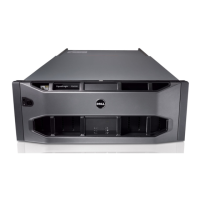
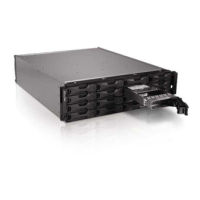

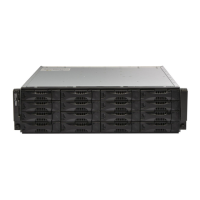
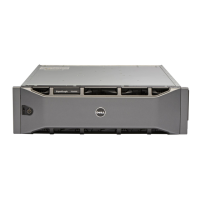

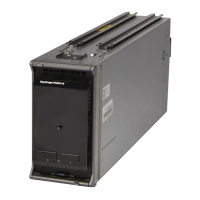


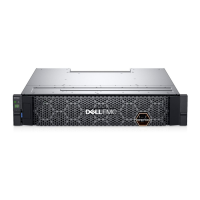
